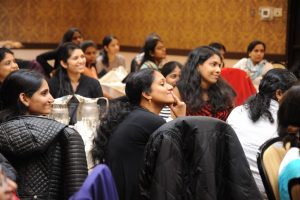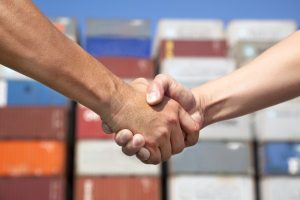I haven’t shaken the hand of a stranger, kapa motsoalle ka taba eo, nakong e fetang selemo, ebile ha ba na batho ba bangata ba Canada.
Sena se kanna sa bonahala e le sehlabelo se seholo. Seoa sa COVID-19 se re utsoelitse haholo. Baratuoa ba shoele. Likhoebo li koetsoe. Bana ba oetse morao lithutong tsa bona tsa sekolo.
Ho lahleheloa ke ho ts'oarana ka matsoho e kanna ea ba ntho e re tšoenyang haholo.
Empa rea ​​li hloka. They’re more than gratuitous social gestures. They’re essential actions that forge relationships and build human connection.
 Ba roba leqhoa. Ba bontša papali ea lipapali qetellong ea lipapali. Ba tiisa litumellano tse re lumellang ho reka le ho rekisa.
Ba roba leqhoa. Ba bontša papali ea lipapali qetellong ea lipapali. Ba tiisa litumellano tse re lumellang ho reka le ho rekisa.
Sena ke 'nete haholo-holo ho lihoai. Le ha re its'etleha ho bo-ramahlale ba maemo a tlase ho hlahisa le ho sireletsa peo eo re e jalang le lisebelisoa tsa theknoloji e phahameng ho kotula lijo tseo re li lemang, re tsamaisa khoebo ea rona e ngata ka tsela ea khale. Mme seo se bolela ho tsukutla matsoho nameng, e sa phahamisetse batho ba phikisele mohaleng oa Zoom.
Mabapi le 15 likhoeli tse fetileng, ha lefats'e le ne le qala ho amohela phephetso ea COVID-19, Ke ne ke le kopanong ea polasi e Vancouver—ka mantsoe a mang, e ne e le bophelo joalo ka mehleng ho nna lefats'eng la temo. Pele ho li-lockdowns, I’d speak at events such as this about ten times a year, and I’d attend even more.
Khokahano e teng kahare ho batho ea likopano le liboka e bohlokoa ho indasteri efe kapa efe, empa li ka ba bohlokoa ho lihoai. We don’t congregate in offices. When we’re working in our fields, we’re isolated. Matsatsi a ka feta ha re bona litho tsa lelapa feela mme mohlomong le ba bang ba mmaloa ka hara lesakana le lenyane.
I’ve joked that on our farm in rural Saskatchewan, we haven’t had to adopt special pandemic practices because we were social distancing long before anybody had ever heard of COVID-19.
 Kahoo lihoai li na le lebaka le ikhethang la ho nka monyetla ka likopano moo batho ba ka kopanang, ithute, le ho ntlafatsa. Re tlameha ho nka menyetla ea ho tšoarana ka matsoho.
Kahoo lihoai li na le lebaka le ikhethang la ho nka monyetla ka likopano moo batho ba ka kopanang, ithute, le ho ntlafatsa. Re tlameha ho nka menyetla ea ho tšoarana ka matsoho.
Ha ke khutla Vancouver, libeke tse 'maloa ka mor'a hore litÅ¡itiso li sebetse, Ke ne ke tlameha ho fofa ho ea Belgium ho emela lihoai tsa Canada kopanong ea khoebo ea temo. Morero oa ka e ne e le ho hlalosa hore na re sebelisa lisebelisoa tsa ts'ireletso ea lijalo joang le hobaneng, ho theola tÅ¡abo ea bareki le batsamaisi ba Europe ba tsitsipanyang neng kapa neng ha ba utloa lentsoe “glyphosate.”
Ha ho motho ea kholisang ka lijo le hore na li lengoa joang ho feta lihoai tsa 'nete—mme bareki ba rona ba hloka ho re bona, botsa lipotso, mme o utlwe seo re se buang.
Qetellong, it will be very difficult to change the hearts and minds of skeptics who don’t know much about food production if we can’t look them in the eye and yes, tsukutla matsoho a bona.
Ketsahalo ea Belgium e ile ea hlakoloa, ehlile, mme eo e ne e le khetho e nepahetseng. Nako e fetang selemo hamorao, Leha ho le joalo, re hloka ho khutlela setloaeling hobane re hloka ho qala ho lokisa 15 likhoeli tsa likamano tse robehileng.
Pele ho seoa, Ke ne ke nahana hore khoebo ea Canada e se e loketse ho eketseha. Re ne re sa tsoa buisana le USMCA, tumellano ea rona e ntlafalitsoeng le United States, Mexico, le Canada. Ts'ebelisano ea Trans-Pacific, e re hokahanyang le linaha tse potileng Pacific Rim, e ne e fumana tlhokomelo le matla. Mmuso oa provense oa Saskatchewan o bile oa bula ofisi ea khoebo Singapore, so we could take advantage of TPP’s opportunities through in-person meetings.
 Kajeno, kamora nako e fetang selemo ea meeli e koetsoeng, boemo ba rona bo ikutloa bo fapane haholo. Ha mekhahlelo ea rona ea khoebo e ntse e sebetsa, batho ba tloaetse ho sheba ka hare—and I’m worried that we’re going to hear new calls for the protectionism that is the enemy of farmers, khoebo le bareki ba itÅ¡etlehileng ka mebaraka ea lefats'e.
Kajeno, kamora nako e fetang selemo ea meeli e koetsoeng, boemo ba rona bo ikutloa bo fapane haholo. Ha mekhahlelo ea rona ea khoebo e ntse e sebetsa, batho ba tloaetse ho sheba ka hare—and I’m worried that we’re going to hear new calls for the protectionism that is the enemy of farmers, khoebo le bareki ba itÅ¡etlehileng ka mebaraka ea lefats'e.
Here’s a simple step in the right direction: Let’s start by allowing motsamao o lokolohileng pakeng tsa Canada le United States. Sena se tla lumella keketseho ea theko ea moeli le thekiso ea lisebelisoa tsa lijalo, mechini le lijo-thollo. Tlholisano e ntseng e eketseha har'a bareki le barekisi e tla tsoela lihoai le likhoebo mahlakore ka bobeli a moeli.
 Batho ba Canada le Maamerika ka bobeli ba rata ho ithorisa ka hore 49th parallel ke moeli o molelele ka ho fetisisa o sa sireletsoang lefatÅ¡eng, e ka fihlelleha ke batsamai ka mahlakore ka bobeli. Let’s go back to leaving it undefended and accessible. Re ka kopana ho Borokho ba Khotso ka bochabela le Khotso ea Khotso ka bophirima.
Batho ba Canada le Maamerika ka bobeli ba rata ho ithorisa ka hore 49th parallel ke moeli o molelele ka ho fetisisa o sa sireletsoang lefatÅ¡eng, e ka fihlelleha ke batsamai ka mahlakore ka bobeli. Let’s go back to leaving it undefended and accessible. Re ka kopana ho Borokho ba Khotso ka bochabela le Khotso ea Khotso ka bophirima.
Tsamaiso ea mahala lipakeng tsa Canada le U.S. e ka ba selelekela sa mokhatlo oa mahala lefatÅ¡eng ka bophara. I can’t wait to visit Belgium and talk about the importance of global trade and global connections—le ho tsukutlana ka matsoho hape.
__________________________
Charles Peeters ke sehoai seterekeng sa Goias naheng ea Brazil ebile ke setho sa Global Farmer Network Charles Peeters ke sehoai seterekeng sa Goias naheng ea Brazil ebile ke setho sa Global Farmer Network 2021 Global Farmer Network Roundtable and Leadership Training. Tentatively scheduled to be held during summer 2021, the next Roundtable will include a virtual component prior to meeting in person in Brussels, Belgium. The face-to-face event date is dependent on when travel is allowed and people feel safe. Lenaneo la Koetliso ea Lipuisano Mona.
tlanya mona ho etsa monehelo ho Global Farmer Network.


